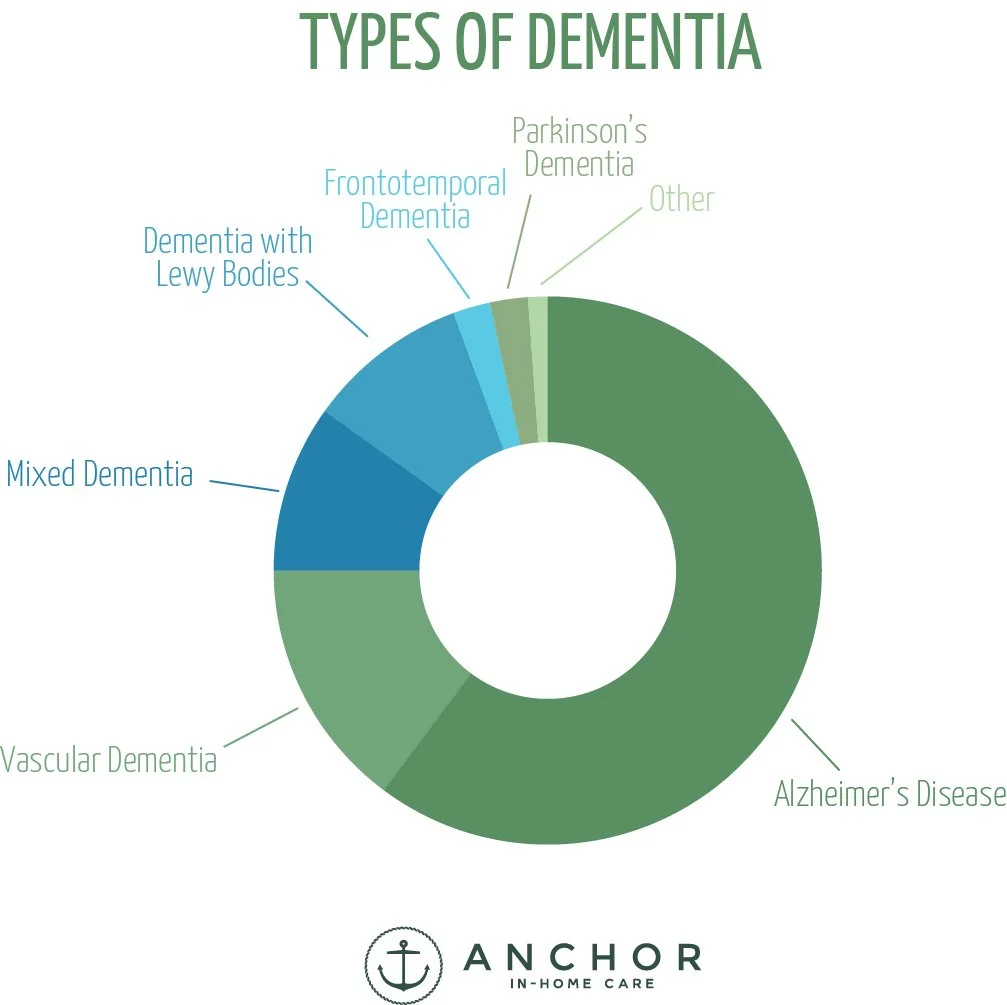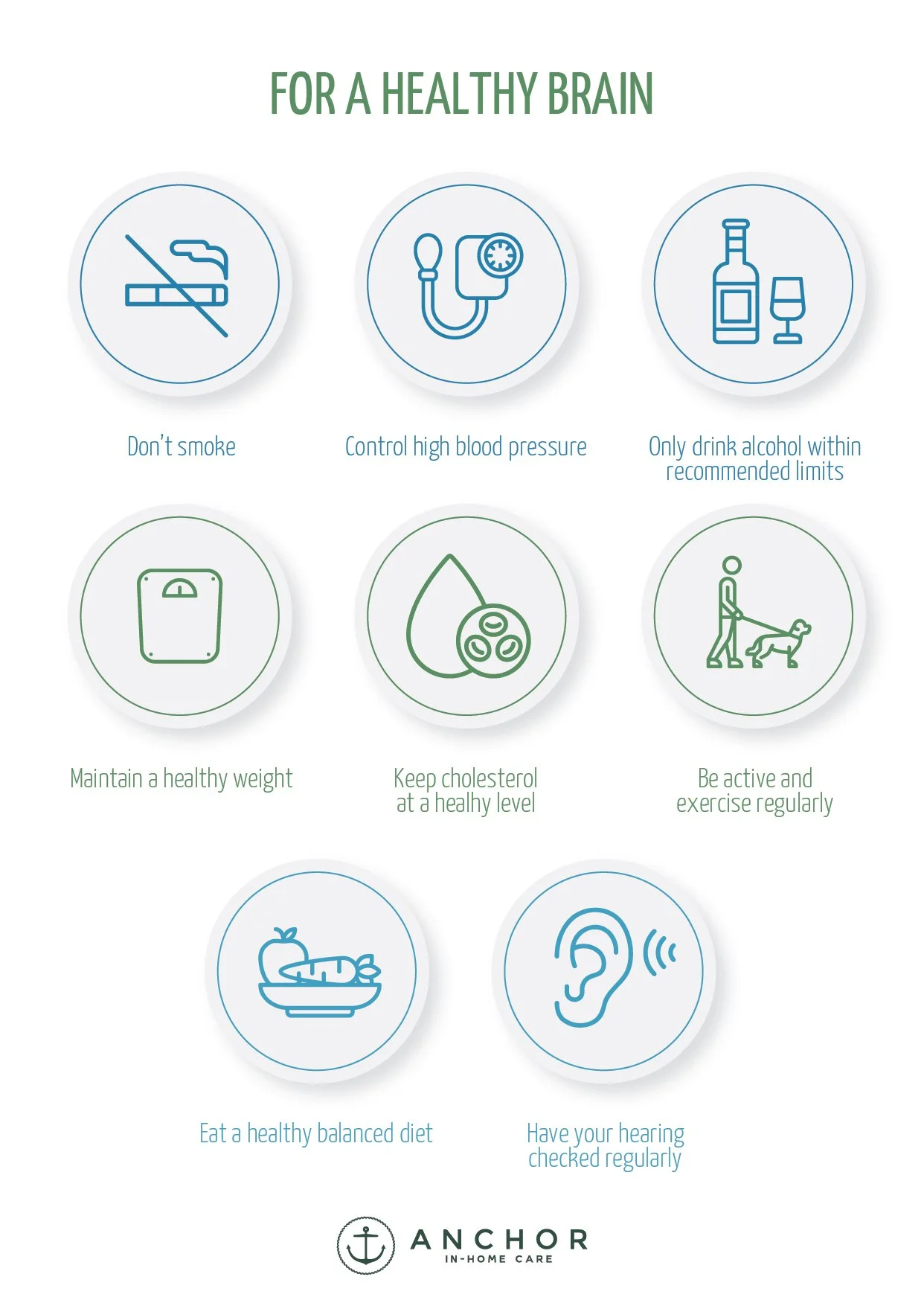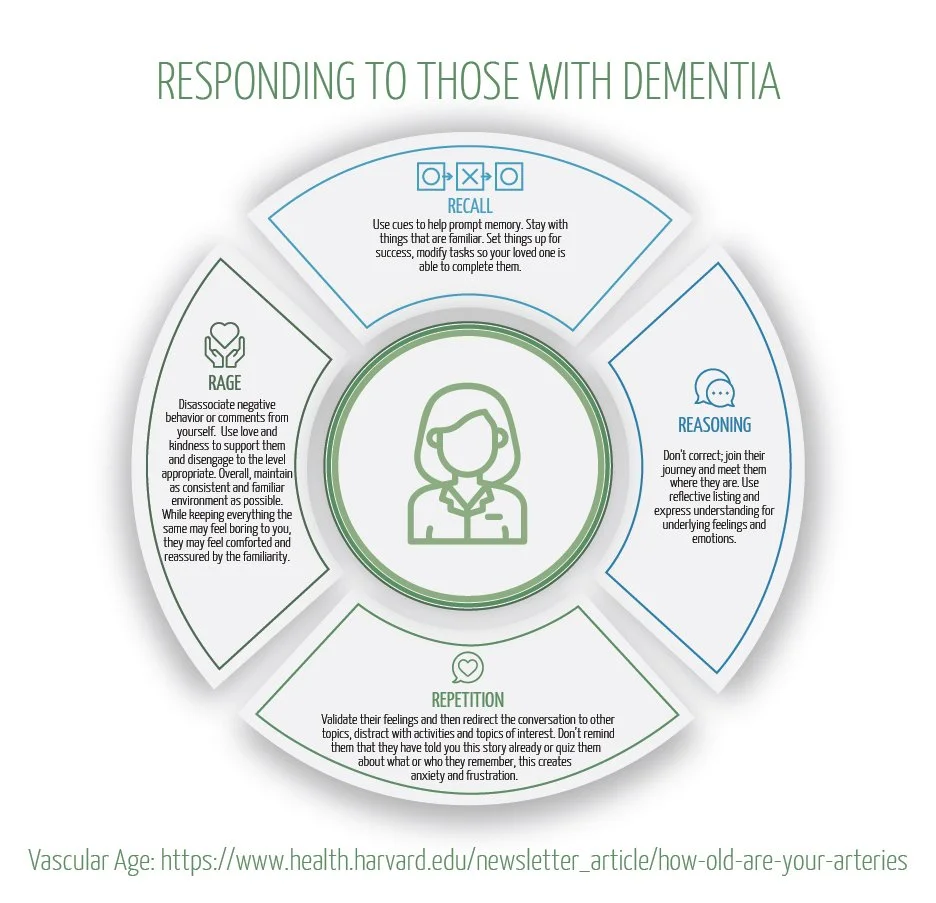Dementia:
Signs, Prevention, and Tips for Caregivers
As medical advancements allow us to live longer and make more memories with our families, we will also see an increasing number of age-related health conditions, such as dementia.
Characterized by a loss of memory, language, and thinking that extends beyond general aging, dementia cases are expected to triple by the year 2050 to more than 152 million cases worldwide. With these rising numbers, it’s more important than ever to be aware of the signs of dementia to aid in early diagnosis and be aware of the ongoing research to help slow—or possibly even stop—dementia’s progression.
What is Dementia?
Dementia is a term used to encompass a loss of problem-solving, memory, language, and other cognitive (thinking) abilities. It is a general term used for problems in any/all of these areas and is utilized when the losses interfere with daily life because of their severity.
Dementia results from a number of diseases that cause damage to the cells in the brain. When the brain cells become damaged, they struggle to communicate with each other, which can then lead to changes in someone’s ability to communicate, think, behave, and express emotions.
A common misconception is that Alzheimer’s and dementia are the same, and they are often used interchangeably. However, that is not the case. Alzheimer’s is a disease that can cause dementia, and while it is the most common cause of dementia, not everyone who has dementia also has Alzheimer’s.
Signs of Dementia
When it comes to getting those with dementia help, a crucial first step is being able to identify the signs of dementia. Some of these signs include problems with:
- Short-term memory
- Paying bills
- Keeping track of a purse or wallet
- Remembering appointments
- Planning and preparing meals
- Traveling out of the neighborhood
- Following a plan
- Repeating themselves
Some people with dementia may also experience:
- Vision changes causing difficulty with balance or reading
- Difficulty recalling a word for a familiar object
- Changes in mood and personality (e.g., become suspicious, confused, fearful, depressed, or anxious)
The signs of dementia can differ from person to person, and this is because the signs that manifest depend on if the damaged area of the brain is responsible for memory, movement, judgment, etc. For example, if a disease damages the cells in the language part of the brain, someone may struggle to recall the word for an everyday object or may drop off in the middle of a conversation.
The problems that encompass dementia typically go unnoticed when they first appear, often being attributed to age. However, dementia symptoms are progressive, meaning they start small and gradually get worse. This is why it is crucial to notice the signs early: to start interventions before they progress too far.
Can Dementia Be Prevented?
Early diagnosis is crucial with dementia because some causes of memory, language, and thinking difficulties––such as depression, excess alcohol use, medication side effects, vitamin deficiencies, or thyroid problems––may be treatable, and by treating the cause, the symptoms of dementia may then go away.
However, most changes in the brain that cause dementia are permanent and worsen over time. Because of this, an early diagnosis can allow for interventions before the damage progresses.
While there is no specific medication that can be taken to prevent dementia, following a healthy lifestyle and addressing the risk factors that you can modify (such as stopping smoking) can go a long way in lowering your risk of dementia.
Furthermore, by managing certain health conditions, such as high blood pressure, blood sugar, and weight, you can also help prevent dementia and lower your risk.
Risk Factors of Dementia
Some of the risk factors of dementia, such as genetics and age, cannot be addressed; There is no stopping the clock on your life or changing your genetics. However, many risk factors can be addressed to help prevent dementia.
Some habits that may decrease the risk of dementia include:
- Adopting a healthy diet
- Exercising regularly
- Not smoking
- Getting regular cognitive stimulation
Additionally, there have been links between dementia and various health conditions. For example, having diabetes has been shown to increase your risk of dementia. This may be for many reasons, including its effects on the heart (since heart health is related to brain health), the impact of low blood sugar on the hippocampus (the brain’s memory center), and the possibility of diabetes causing Alzheimer’s disease (a hypothesis still being researched).
In addition to diabetes, health conditions such as atherosclerosis, high cholesterol, hearing loss, depression, rheumatoid arthritis, kidney disease, and being overweight can increase your risk of dementia.
Tips For Caregivers: Relating To Those with Dementia
While we can read about dementia and how its symptoms appear, those caring for individuals with this disease may struggle with how to best care for them.
Having dementia can be challenging as it makes it harder to communicate. Imagine having a word continually on the tip of your tongue, yet always out of grasp. When this occurs constantly, it can make someone anxious and agitated. Sometimes, they may even become angry.
Dementia can also affect someone’s memory, making it so that they don’t know what day or even year it is.
It may seem challenging for you to communicate with those with dementia if their language or memory is affected, but remember that they’re experiencing these same frustrations.
Some ways to help those with dementia include:
- Respecting their personal space
- Reassuring the person and listening to their frustrations
- Keeping well-loved objects and pictures nearby
- Trying to keep a routine
- Planning activities they enjoy doing
- Allowing them to do as much as they can
How To Learn More About Dementia
Dementia is a term used to encompass problems with memory, thinking, and language, which stem from interferences in brain cell connections. There are many possible causes of dementia, but Alzheimer’s is the most common.
Unfortunately, most cases of dementia are permanent. However, dementia is a condition that progressively worsens, so intervening early can help slow this progression. Research is continually ongoing to find treatments that can help slow this progression, with some even working to halt it completely.
For those looking to learn more about dementia, the Alzheimer’s Association and the Centers for Disease Control and Prevention (CDC) are a wealth of knowledge. The more information you have, the better you can spot, prevent, and manage dementia, and the more we can help our aging population enjoy their golden years.
References
Cases D. Global Dementia Cases Forecasted to Triple by 2050 | AAIC 2021. AAIC. Published 2021. https://aaic.alz.org/releases_2021/global-prevalence.asp
News from #AAIC19: Lifestyle interventions may offset elevated Alzheimer’s risk due to genetics, environment. AAIC. Published 2019. https://aaic.alz.org/releases_2019/sunLIFESTYLE-jul14.asp
Claudio Barbiellini Amidei, Fayosse A, Julien Dumurgier, et al. Association Between Age at Diabetes Onset and Subsequent Risk of Dementia. JAMA. 2021;325(16):1640-1640. doi:https://doi.org/10.1001/jama.2021.4001
Rojas M, Chávez-Castillo M, Bautista J, et al. Alzheimer’s disease and type 2 diabetes mellitus: Pathophysiologic and pharmacotherapeutics links. World Journal of Diabetes. 2021;12(6):745-766. doi:https://doi.org/10.4239/wjd.v12.i6.745
Alzheimer's Society. Risk Factors for Dementia.; 2021. https://www.alzheimers.org.uk/sites/default/files/pdf/factsheet_risk_factors_for_dementia.pdf
Tips for Caregivers and Families of People With Dementia. Alzheimers.gov. Published 2022. https://www.alzheimers.gov/life-with-dementia/tips-caregivers
Can I Prevent Dementia? Alzheimers.gov. Published 2022. Accessed February 5, 2024. https://www.alzheimers.gov/life-with-dementia/can-i-prevent-dementia





